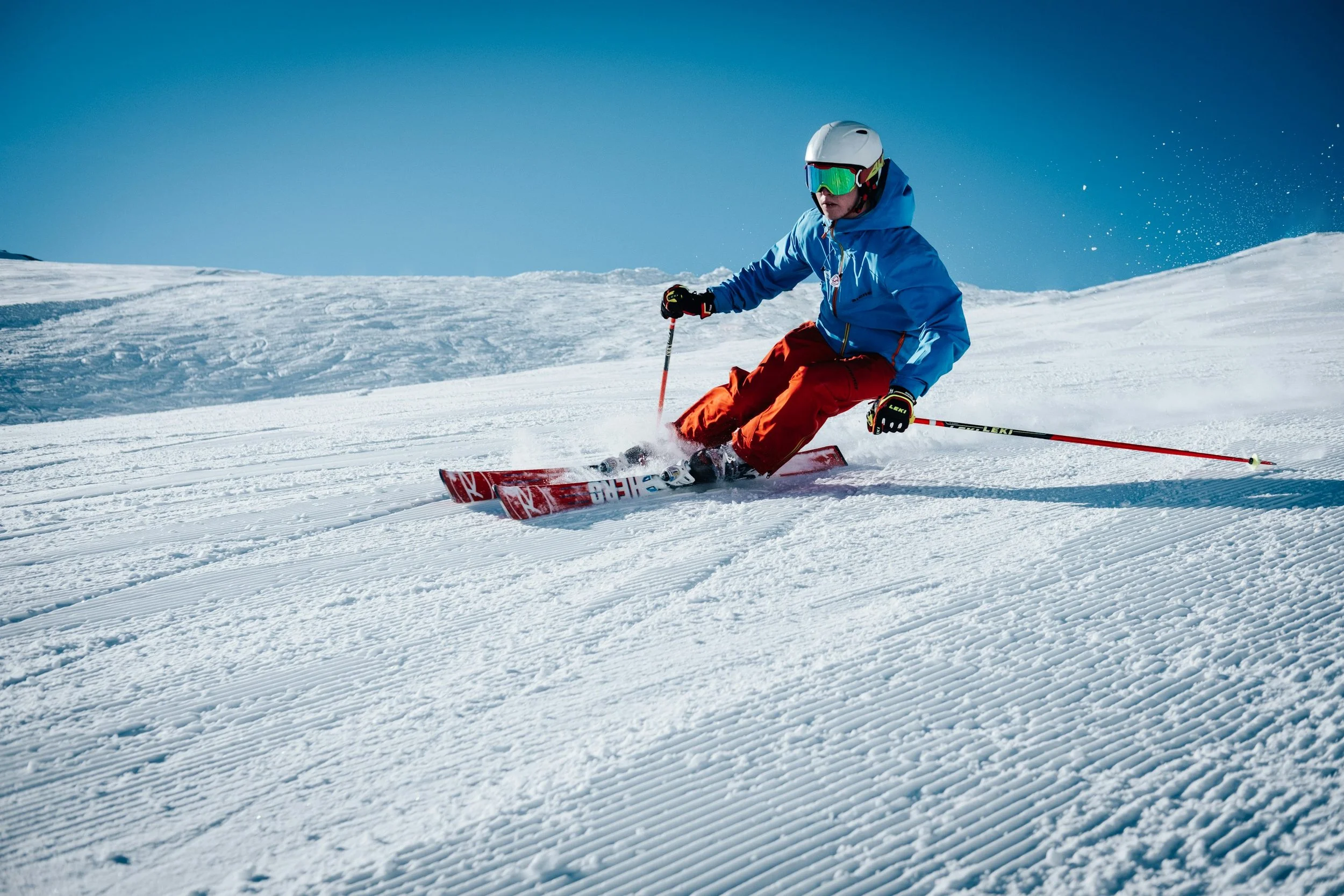Skiing and Snowboarding Specific Physical Therapy in Denver
It's November 13th and Denver is yet to see its first snowflake. If you read my previous newsletters, it was full of optimism…… we’ve officially hit concern and mild anxiety. Not quite full on despair, but what the heck…… where is all the snow?
This past weekend, Jess and I hosted her sister, Bridget. It was truly a Denver, Colorado weekend. Green Mountain Brewery Friday night, hiking the Flatirons Saturday, and lifting Sunday. I complain about the lack of snow, but we are certainly trying to take advantage of the short reprieve. While we may still be experiencing glimpses of hiking season, you can almost feel the powder under your board. So for this week, we're talking about the most common skiing and snowboarding injuries and how physical therapy can help.
1) AC Joint Sprains and Separations
Falling is a natural part of skiing and snowboarding. You may hit an edge on your board. You may hit an icy section on the run. Sometimes you may even hit a tree. When we fall, as a result of momentum we tend to land on our shoulders. With all that force coming down directly on the shoulder, something has to take the burnt from the fall. Our AC joint tends to be that location.
The AC joint is responsible for connecting the shoulder blade to our clavicle anatomically but functionally transfers force from the trunk to shoulder when reaching, lifting, dressing, whatever it may be. While the initial recovery tends to be quite swift, if not addressed properly, the shoulder creates its own solutions to its own problem. You can find an example of this in one of our patients HERE!
The focus of physical therapy after an injury such as an AC joint sprain is to first regain any loss of motion, but then focus efforts to regain strength and stability through overhead strengthening. The deltoid and scapular muscles are our primary focus in this recovery and given the separation isn’t too large to overcome, most patients recover well conservatively.
2) ACL, Meniscus, MCL, and LCL Sprains and Tears…. all the L’s
Especially in skiing, there is a large amount of rotational and torsional forces that transfer through the lower extremities during a run or park riding. As with the AC joint during a fall, that force has to go somewhere. Unfortunately, in the knee, a lot of the rotational stability comes from our ligaments and if the force is too large, we tend to injure these structures.
Although ligament injuries can be quite scary at the time of injury, a lot of the time they can be managed conservatively. Yes, even the ACL. By placing focus first on returning function of the knee, we then shift into overdrive, strengthening the hell out of it. So much to point that it can overcome the lack of ligamentous stability that was previously present. We reteach it how to create force, absorb force, and finally control force. You can find an example of this in one of our patients HERE!
3) Concussions
Shoulders aren't the only thing hitting the ground when we fall. Our heads, even if wearing a helmet, take their own turn finding snow. As with the shoulder, with enough force to the head, our brains can suffer injury as well. The result is a concussion.
The most common symptoms amongst our patients tend to be dizziness and headaches, but when dealing with concussions, symptoms can be far greater as well and should not be taken lightly. Physical therapy for concussions focus on habituation of symptoms and graded exposure to symptomatic stimuli.
We are all fortunate to live in a place where skiing areas are abundant. But as with any sports, injuries do happen and sometimes unavoidable. The blessing is that most injuries that occur as a part of skiing and snowboarding can be managed with physical therapy conservatively. If you find yourself in this position this Winter, give us a call and we hope to help you on your journey back to the mountain.
Helping athletes RESOLVE THEIR PAIN by CLEARLY DEFINING THE PROBLEM and IMPLEMENTING EFFECTIVE SOLUTIONS to get them back doing the activities they love!
If you are currently struggling with an injury or unable to perform in the activities you enjoy. Please follow the link to schedule a consultation call to discuss how we can help you.

